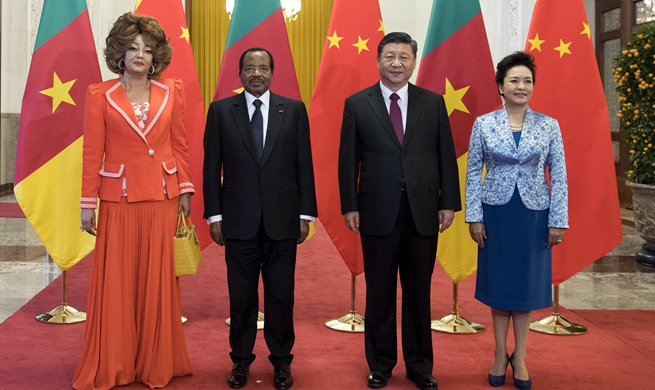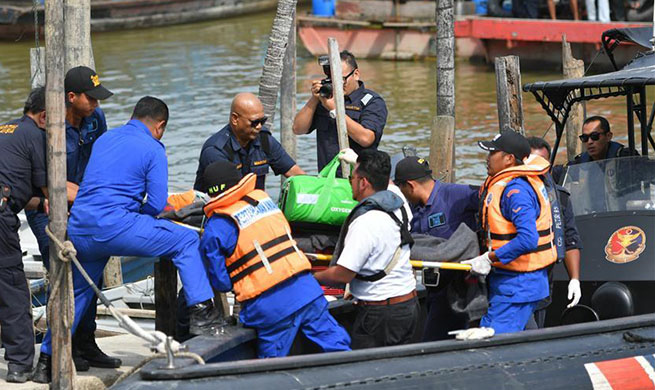GENEVA, March 23 (Xinhua) -- On the eve of World Tuberculosis (TB) Day, UN agencies warned on Friday that despite significant progress over the last decades, TB continues to be the top infectious killer worldwide claiming over 4 500 lives a day, and that the world must take unprecedented and bold action to advance efforts to end TB and AIDS by 2030.
The World Health Organization (WHO) has pinned TB as one of the top 10 causes of death worldwide.
Though an estimated 53 million lives were saved through TB diagnosis and treatment between 2000 and 2016, in 2016 alone, 10.4 million people still fell ill with TB and 1.7 million died from the disease, with 95 percent of the deaths occurring in low- and middle-income countries.
TB is, in particular, a leading killer of HIV-positive people. In 2016, 40 percent of HIV deaths were due to TB. Meanwhile, the emergence of multidrug-resistant TB (MDR-TB) still remains a major public health threat and could risk gains made in the fight against TB.
"The world has the resources to end the interlinked epidemics of tuberculosis and HIV, but political commitment and country action are lacking," said UNAIDS Executive Director Michel Sidibe.
"Political, religious and civil society leaders need to step up to guarantee everyone the right to breathe, to live free from tuberculosis and AIDS," Sidibe said.
That echoes to the theme of this year's World TB Day -- "Wanted: Leaders for a TB-free world".
It focuses on building commitment to end TB, not only at the political level with heads of state and ministers of health, but at all levels from mayors, governors, parliamentarians and community leaders, to people affected with TB, civil society advocates, health workers, doctors or nurses, NGOs and other partners. All can be leaders of efforts to end TB in their own work or terrain.
According to the WHO, HIV and TB form a lethal combination, which leaves people living with HIV 20 to 30 times more likely to develop active TB disease than those without HIV.
Each of the two diseases speeds the other's progress. In 2016, about 0.4 million people died of HIV-associated TB; about 40 percent of deaths among HIV-positive people were due to TB; and there were an estimated 1.4 million new cases of TB amongst people who were HIV-positive, 74 percent of whom were living in Africa.
To address the challenges, UNAIDS has outlined a series of important actions, such as ensuring rights-promoting and non-discriminatory service delivery for all; empowering communities to demand their right to health; giving a new impetus to the response to TB and HIV by impelling political, religious and civil society leaders; and innovating for new medicines and vaccines.
In November 2017, the Ministerial Conference on Ending TB in Moscow brought about high-level commitments from ministers and other leaders from 120 countries to accelerate progress to end TB.
In September 2018, world leaders will come together at the UN headquarters in New York for the first-ever UN General Assembly High-Level Meeting on Tuberculosis, which will be an important opportunity for countries to adopt a progressive, visionary and actionable political declaration on TB.
UNAIDS and the WHO have urged all partners to ensure that TB is elevated on global, regional, national and sub-national political and social agendas, that TB and HIV are addressed in unison, and that partners combine robust efforts to end TB and HIV by 2030 as part of the UN Sustainable Development Goals.

















